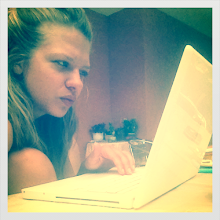If you somehow don't know who Sonny Rollins is let me tell you a little something about this amazing musician. His full name is Theodore Walter "Sonny" Rollins. He was born in 1930 in New York and started his career at the age of 11 playing with piano legend Thelonious Monk before he was 20. He really started as a pianist, then changed to alto saxophone and finally switching to tenor sax in 1946. The highlight of his career which gave him that kick on the scene was recording with Miles Davis in 1951 and then with Thelonious Monk in 1953. He joined the Clifford Brown - Max Roach quintet in 1955 and after Brown's death in 1956 he mainly works as the leader.
His most widely acclaimed album, Saxophone Colossus, was recorded on June 22, 1956, featuring Tommy Flanagan on piano, former Jazz Messengers bassist Doug Watkins and his favorite drummer Max Roach. This was only Rollins' third outing as a leader in the recording studio, but it was a date on which he recorded perhaps his best-known composition "St. Thomas", a Caribbean calypso based on a tune sung to him by his mother in his childhood: "St. Thomas is a song my mother used to sing, it is a traditional tune."
John Coltrane was yet to become a major figure, and Rollins was the leading modern jazz saxophonist in America. In 1957 he pioneered the use of bass and drums (without piano) as accompaniment for his saxophone solos. This texture came to be known as "strolling". Two early recordings in this format are Way Out West (Contemporary, 1957) and A Night at the Village Vanguard (Blue Note, 1957). Throughout his career, Rollins used the technique, even backing bass and drum solos with sax licks.
By this time, Rollins had become well-known for taking relatively banal or unconventional material (such as "There's No Business Like Show Business" on Work Time, "I'm an Old Cowhand" on Way Out West, and later "Sweet Leilani" on the Grammy-winning CD This Is What I Do) and turning it into a vehicle for improvisation. He is quite well-known as a composer; a number of his tunes (including "St. Thomas", "Doxy", "Oleo" and "Airegin") have become standards.
In case you didn't get your ticket, I suggest you hurry and get one now! If it's not a good time for you or you are not near Italy, he will be playing in other locations as well, which you can check at his website - http://www.sonnyrollins.com/itinerary.php
I think it would be a big pity to miss this concert and seeing this legendary sax player and a jazz man in person, because we should consider ourselves lucky he has the energy to still play and travel the world! Honestly, I'm not sure if I would be doing the same thing if I were his age! So, this is an amazing opportunity people and use it!!!
If you want to learn more about Sonny go to this site: http://en.wikipedia.org/wiki/Sonny_Rollins
Sonny Rollins - the official website: Sonny Rollins













